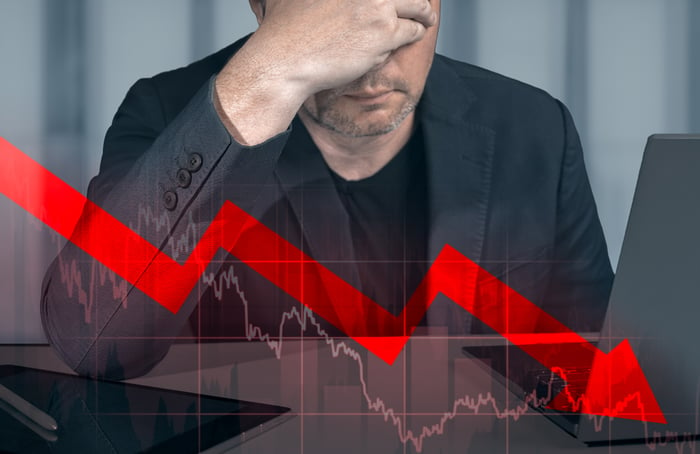Hormel Foods (HRL -1.59%) stock is getting punished by Wall Street, with its shares currently down around 30% from their 52-week high. That compares to a roughly 10% drop for the average consumer staples stock, using the Vanguard Consumer Staples ETF as a proxy.
Hormel is facing problems common within the food space, but it also has some company-specific issues dragging it down. Still, the historically high yield on offer today may be worth the risk. Let's dive in.
A tough environment
Like all of its peers, Hormel is trying to offset the margin squeeze that has come from rising inflation. Indeed, as the costs for ingredients, employees, and transportation increase, companies have little choice but to raise prices or find ways to cut those costs unless they are willing to just make less money. Not surprisingly, Hormel is cutting costs and raising prices, which is the right long-term move.

Image source: Getty Images.
The problem for Hormel, and its consumer staples peers, is that price increases are a delicate dance even at the best of times. As consumers face higher costs they often switch to lower-priced alternatives or simply buy less. Hormel is focused on selling branded food products, like SPAM, Wholly Guacamole, and Planters, which often cost more than similar store-brand products. The company's recent results have been troubling, with the benefit of price hikes more than offset by a volume decline of 12% in the fiscal first quarter of 2023. Overall sales dropped 2% year over year with earnings lower by 9%.
There's a good reason why investors are downbeat here, given that some peers have proven more adept at sustaining sales while they increased prices. That said, given Hormel's status as a Dividend King, with more than five decades of annual dividend increases under its belt, it seems highly likely that it will muddle through this particular issue, which it has faced before. This alone is not enough to justify the huge underperformance this food maker's stock has experienced.
The other problems
The next big issue to look at for Hormel is within its Jennie-O Turkey business, where avian flu has disrupted supply. Supply is the big issue, however, not demand, which the company explains is still quite strong. The big problem is that Hormel can't process enough turkey to fill the demand it is seeing. That's not good, but it is hardly a terrible position to be in. A lot will depend on the avian flu's progression, but there's little Hormel can do about that. Eventually, this issue, too, will likely pass, and still-strong demand bodes well for the future.
Then there's the Planters business, which the company only just acquired in mid-2021. After meeting management's expectations in 2022, the brand is off to a slower than expected start in fiscal 2023. The company is "executing strategies to drive improvement for our Planters business and the snack nuts category." This is not good news, but investors should probably give Hormel the benefit of the doubt given its successful history of innovation and brand acquisition.
Notably, the former owner of the Planters brand didn't support it particularly well. So it isn't shocking that Hormel has work to do before Planters is on a more even path.
There's one more problem that has Wall Street worried with Hormel -- it got caught flat-footed on the inventory front. During the early days of the coronavirus pandemic, supply chain upheaval required higher inventory levels. That shifted, and now Hormel has too much inventory, suggesting that business execution has been less than ideal. Reducing inventory levels will probably be an earnings drag.
Like all of the other issues it is facing, Hormel will likely solve this problem in time. But when added on to the other issues, it seems like the negatives are just piled too high right now.
The opportunity
Clearly, Hormel is not executing at the top of its game today. But the stock decline has pushed the dividend yield (currently 2.8%) toward the high end of its historical range despite the strong, long-term dividend growth Hormel has offered investors. It's worth noting that the most recent dividend hike, made in February, was fairly generous at roughly 6%. That's not the type of increase a company makes if it is worried about the future.
All in, Hormel is facing a lot of headwinds at one time, but all of them appear surmountable given enough time. If you are a long-term dividend growth investor, Hormel's historically high yield is likely to be a buying opportunity.






